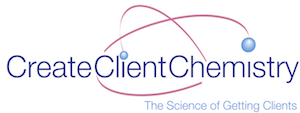 One of the first things I usually ask a new client is: “Who is your target market?”
One of the first things I usually ask a new client is: “Who is your target market?”
When they do not have one or their target market is not very well defined, we actively work on it until they know whom it is they want to work with.
So, what is a target market and do you really need to have one?
What is a target market?
Let me explain it with an analogy.
Let’s say that all the people in the world who might be able to work with you or who could find your services of value can be compared with a pie. All these people are however not your target market because they are just too diverse and different.
Your target market will be a smaller slice of this pie – it will typically be people who has similar characteristics; who you can easily identify; those people who you can help best with what you offer; who you will enjoy working with and who will pay your price without kibbling about it.
So you target market are those people who will most likely make use of your services or buy your products.
Do you need a target market?
In my opinion, YES. You need a target market and here is why:
Identifying a target market makes your marketing much, much easier.
It…
- Gives you the opportunity to work with people of your choice and to get to know them really well so that you can position your business to give them exactly what they need;
- Allows you to create a marketing message that is much more specific to your audience and which they will understand and respond to;
- Prevents the risk of diluting all your efforts by trying to meet every need of every client in every field. When you know the specific needs of your market, you can tailor your message and services to focus on solutions to those needs;
- Helps you generate more quality leads;
- Makes converting prospects into clients much easier;
- Helps increase the loyalty of your existing customers;
- Inspires people to spread the word about your business and what it is you do;
- Allows you to gain a competitive edge in the marketplace;
- Positions you as an expert or preferred supplier within your industry;
- Makes raising your rates easier – when you establish yourself as an expert with specific services that are in demand, your expertise is more valuable to clients and therefore you can charge more;
- Saves on marketing expenses since you concentrate on clients who will most likely make use of your services.
The key to targeting an audience is to be very specific – to identify a market that you’ll enjoy working with and who’ll receive massive value from working with you.
I truly believe that your ability to target and then connect with a specific audience can mean the difference between struggling and thriving as a service entrepreneur.
What do you think?




